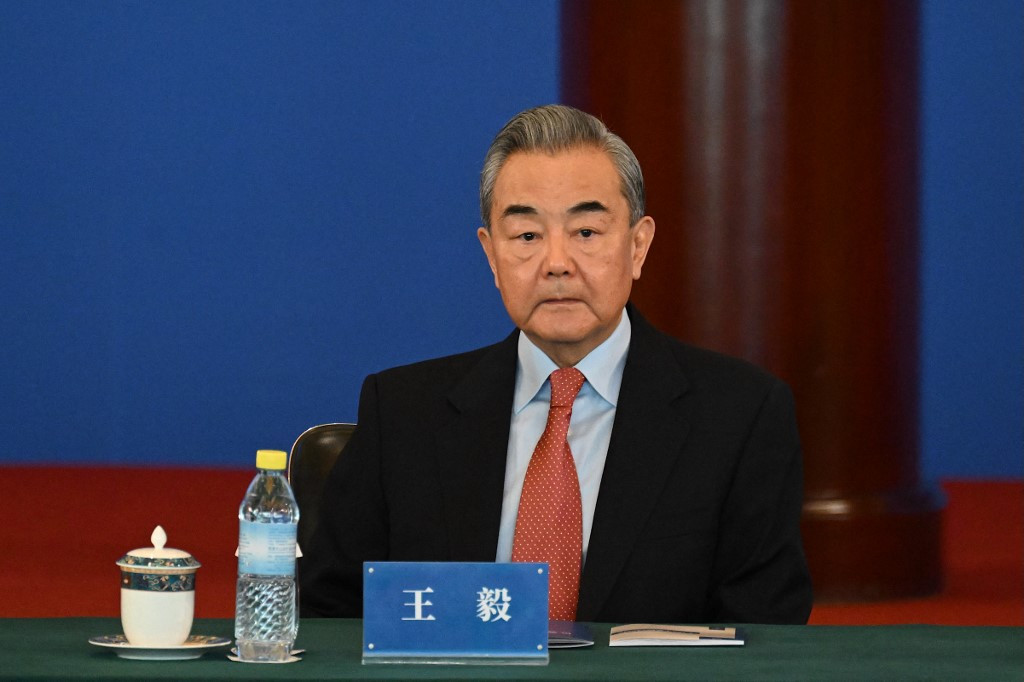Popular Reads
Top Results
Can't find what you're looking for?
View all search resultsPopular Reads
Top Results
Can't find what you're looking for?
View all search resultsChina, Japan foreign ministers meet in Beijing, seafood trade on agenda
Change text size
Gift Premium Articles
to Anyone
S
eafood trade is expected to be on the agenda on Wednesday as Japan's foreign minister visits China, Japan's largest export market for aquatic products until Beijing banned them in protest against Tokyo releasing treated radioactive wastewater into the ocean.
In Takeshi Iwaya's first visit to the Chinese capital since he became Japan's foreign minister in October, he will hold talks with China's Foreign Minister Wang Yi and meet other Chinese officials.
"I believe it is important to have concrete and tangible examples of future possibilities of Japan-China ties," Iwaya said at the start of the meeting with Wang.
"It is important for both Japan and China to fulfil responsibilities and move forward together in pursuit of the peace and prosperity of this region and the international community," he said.
Wang also stressed that the significance of the countries' relationship went beyond bilateral ties.
"If China-Japan relations are stable, Asia will be more stable," Wang said.
A major sticking point in bilateral ties has been Japan's discharge of wastewater from the Fukushima nuclear plant. Beijing had strongly opposed and condemned Tokyo's decision and tightened inspections on Japanese goods in response.
China imposed a full ban last year after Japan began releasing the treated radioactive water, but both governments reached an agreement in September that would set a path towards restarting seafood shipments from Japan to China.
Japan's Nikkei newspaper reported this week that China was contemplating lifting the import ban on Japanese seafood.
But China still wants reassurances from Tokyo that it would fulfil its commitment to setting up a long-term international monitoring arrangement and allowing stakeholders such as China to conduct independent sampling and monitoring of the treated water.
With sufficient monitoring, China will "adjust relevant measures" and gradually restore imports that meet standards and regulations, a foreign ministry spokesperson said on Tuesday.
The one-day visit follows an agreement between leaders of both countries that they will work towards a mutually beneficial strategic relationship.
Relations between the neighbouring countries are in a "critical period of improvement and development", Chinese President Xi Jinping said last month when he met Japanese Prime Minister Shigeru Ishiba on the sidelines of the Asia-Pacific Economic Cooperation forum in Lima, Peru.
Xi said both should "be partners, not threats".
Ties between China and Japan, trade partners with close economic and investment ties but rivals in security and territorial claims, are complicated with long-standing geopolitical disagreements and historical wartime sensitivities.
As the first Japanese foreign minister to visit since April last year, Iwaya may raise his country's concerns about Chinese military activities around Japan as well as regional issues including North Korea.
Japan expressed "grave concern" last month over North Korea's security alliance with Russia, in which North Korea stands to gain advanced military technology and combat experience.
On less sensitive topics, China could prod Japan for reciprocity in visa policies.
Last month, Beijing expanded its visa-free arrangements to include Japan until the end of 2025, restoring a policy that was suspended during the pandemic.
China, which has been adding countries to its visa-free list, also extended the stay period to 30 days from 15. Japanese citizens were able to enter China without a visa for up to 14 days before COVID-19.
Japan has not decided on a reciprocal move but China has said it hopes Japan would work toward improving people exchanges between the two countries.










